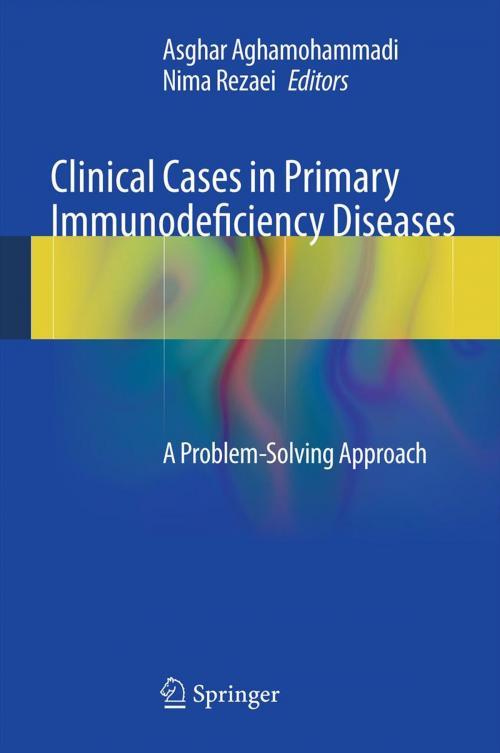Clinical Cases in Primary Immunodeficiency Diseases
A Problem-Solving Approach
Nonfiction, Health & Well Being, Medical, Medical Science, Immunology, Specialties, Pediatrics| Author: | ISBN: | 9783642317859 | |
| Publisher: | Springer Berlin Heidelberg | Publication: | December 13, 2012 |
| Imprint: | Springer | Language: | English |
| Author: | |
| ISBN: | 9783642317859 |
| Publisher: | Springer Berlin Heidelberg |
| Publication: | December 13, 2012 |
| Imprint: | Springer |
| Language: | English |
Primary immunodeficiency diseases (PIDs) are a heterogeneous group of inherited disorders characterized by different defects in the development and function of the immune system. This book aims to increase the clinical awareness and knowledge of practicing clinicians regarding the diagnosis and management of PIDs. In order to achieve this goal, about 90 cases drawn from real life are presented, along with approximately 300 related questions. The selected case reports are the result of the invaluable cooperation of more than 40 scientists in the field of immunodeficiency. They focus both on the presenting features of patients with PIDs and on the required further investigation and management. Each of the numbered cases is followed by the questions, their answers, and additional discussion. Each question focuses on a particular aspect of the PID under consideration, and the topics covered include clinical diagnosis, laboratory findings, molecular mechanisms, and therapy.
Primary immunodeficiency diseases (PIDs) are a heterogeneous group of inherited disorders characterized by different defects in the development and function of the immune system. This book aims to increase the clinical awareness and knowledge of practicing clinicians regarding the diagnosis and management of PIDs. In order to achieve this goal, about 90 cases drawn from real life are presented, along with approximately 300 related questions. The selected case reports are the result of the invaluable cooperation of more than 40 scientists in the field of immunodeficiency. They focus both on the presenting features of patients with PIDs and on the required further investigation and management. Each of the numbered cases is followed by the questions, their answers, and additional discussion. Each question focuses on a particular aspect of the PID under consideration, and the topics covered include clinical diagnosis, laboratory findings, molecular mechanisms, and therapy.















